Having recently been trained in Radical Honesty and Non-Violent Communication I wanted to look at how they stack up. This weekend I was trained by Tullia Syvanen in a workshop about Radical Honesty - a concept conceived in the USA by Dr Brad Blanton,which I will try and sum up here, whilst also giving my personal experiences, in the hope of passing on knowledge and inspiration. WHAT IS IT? RH is a language tool which encourages us to communicate directly and stop lying,. The website says the aim is “to gain freedom from the jail of your mind and then get over shit and be happy, developing more true and intimate relationships.” My interpretation: It seems to me to be a way of processing one's emotions aloud, and in the doing of that one can cultivate extreme ownership of one's choices of attention, imagination, language and actions - one is invited to drop the story and to express present emotion, especially anger, directly to the person ones is feeling angry with, whilst relating it to real (not imagined) actions, words or things. “Honesty is the first chapter of the book wisdom.” ― Thomas Jefferson 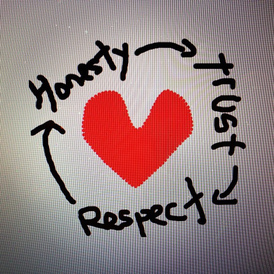 HOW DOES RADICAL HONESTY WORK? The theory is that people usually avoid being angry at someone else for years, holding it in the body and mind as resentment. This pent up energy weakens connections and takes a toll on the body, weighing us down and creating disease. The theory goes that if people actually allowed themselves to get angry at them, they’d probably get over it in half an hour, especially if people are trained to work with their emotions, rather than suppress them. Therefore anger is one of the primary emotions explored within RH. he process is described more fully below. First, there are some simple, but very unusual language tools within that which are intended to clean up the language so that we can clean up the mind, to expose our projections. These language tools are:
Other tools include:
The theory is that with time and direct, truthful expression of difficult emotions and judgements, then appreciation we can trust more in ourselves and each other. It is important to be willing to give the process some time. By talking about these things more often they can become more commonplace and perhaps we can show each other our genuine emotions, so that we can process them more quickly and openly. We learn not to take any of this this personally. When we focus on facts, rather than interpretations and beliefs we can see that we have all living on an imagined fear. In fact the very word belief holds the word ‘lie’ right in the middle of it! if we relax our story and beliefs for a moment, concentrate on facts then we can have ‘real’ and intimate connections, easily and beautifully. Apparently it is a lot easier and less destructive than it might seem. “It's discouraging to think how many people are shocked by honesty and how few by deceit.” Noël Coward MY EXPERIENCE So this was a 2.5 day workshop and the start was messy! The facilitator immediately got us to explore any unexpressed resentments about our lives and then to each other. There was shouting and lots of projection (blame). I was feeling confused at what was going on but on Saturday, after introductions, Tuulia introduced some of the language rules, concepts and we all committed to:
We then continued talking, and reacting at each other’s stories. We would confront one another with long silences as we felt into our sensations and emotions. I was often confused and uncomfortable, but then I realised it was my imagination causing that - I was imagining people thinking I was stupid, arrogant or (fill in the blank). It was these thoughts that were fuelling my emotions and reactions. I was having a lot of judgements too and the more I stayed with sensations the more I realised the judgements were ridiculous, and more about my insecurities and I was able to ask people if they were true, without worrying if they would take it personally. As an example I judged one man in the workshop to be frail, and expressed it (as I was invited to) and we got into a conversation about ageism and that helped me see that I’m attached to the story of being youthful and scared of being a responsible adult, with duties and obligations. It was heated at first, but quickly turned to appreciation. On Sunday I got the chance to take the hot seat. I would be having a conversation with someone in my life with whom I have unfinished business. This is therefore called a ‘Completion Conversation’ but I think of it more as a healing conversation. I spoke with an empty chair - imagining someone in my life (I won’t go into details) and I cried throughout, as I spoke honestly, owning my bitter judgements for about an hour. It was very helpful having a facilitator to keep me on track, away from story and to really feel what was happening. I learned a lot of insights and it helped me to prepare for the REAL conversation - which I’ve committed to complete before Christmas. This was an intense workshop and it also included a lot of love and appreciation. One of the exercises included a 5 minute discussion of everything we liked about ourselves, to which we all agreed to post a video of on Facebook! Mine is at the bottom. It is part of dropping the shame and opening up to truth. “Remember that wherever your heart is, there you will find your treasure.” ― Paulo Coelho, The Alchemist 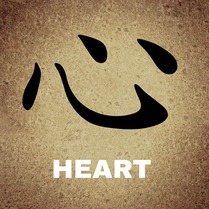 BALANCING IT WITH NON VIOLENT COMMUNICATION Non Violent Communication is something I use in my life - it is sometimes referred to as compassionate communication and the aim is to communicate in a way that makes natural giving possible - through the use of empathy, to yourself and to another. I trained in NVC a year ago. NVC is about connecting from the heart, with empathy and from a place of compassion. The creators of RH don’t seem to like NVC - the two communication styles have similarities, but very different approaches. RH seems to be about expressing angry truth and getting it off your chest so that other emotions can come in and you can see past your imagined bullshit. NVC invites you to process things inside yourself first, whilst maintaining ‘heart connection’ with another, never seeking to blame, diagnose or demand change. RH might call this passive aggressive, but my experience is different. NVC has the potential to negotiate conflict and create a lot of love, and I would also agree that there is an inbuilt weakness - that the structure of NVC diminishes the ability to express emotion in raw form. Expressing raw emotions can bring a deep acceptance and truth to relationships. Here are the two models, or my interpretations of them, side by side:  When you want to be close, honesty pays, and so does sensetivity When you want to be close, honesty pays, and so does sensetivity Also, here is how I see them fitting into my idea of the Drama Vs Presence Triangles of transactional analysis:
INTIMATE VS GENERAL RELATIONSHIPS Authentic expression is best used on the dancefloor and in intimate relationships. Kind, open, empathetic and positive expression can be used everywhere - in our general life. Taking the best elements of both styles, I think that using empathy and sensitivity (when we have capacity) will allow us to choose the appropriate style, but when we don’t have capacity, but we want to take time to create honest relationships I think the skills of RH can be invaluable. They can provide catharsis and truth, as well as the ability to re-align your imagination and expectations. In summary I believe RH is designed to bring an element of authenticity to intimate relationships but is not so well suited to general ones, whereas NVC is actually about connecting generally from a kind hearted place. Both are self awareness tools that can empower us. CONCLUSIONS Ultimately I want to be an artist and I want to have ‘real’ relationships and drop facades, so I see a lot of value in RH, especially within intimate relationships. Relaxing my moralism (expectations beliefs and shoulds) also helps me to relax my anxiety, helps me to be ok with making mistakes and to get over them, even if that triggers emotions in some people. The point is to stop being a perfectionist and suppressing everything in the process. Balancing it with a mindful approach allows us to choose what to express (and therefore release) and what to internally process. As Brene Brown describes, we need to allow ourselves to be vulnerable and at times that means processing stuff aloud, together with others - to be seen as imperfect and beautiful. RH is one such process, but perhaps somewhat of an aggressive one. Maybe in the balance we can all learn to get over shit and be happy, even if that means we have to piss each other off a bit in the process. I'm still working out how I use these tools. What do you think? Please let me know your thoughts from this blog or your experiences with balancing honesty and empathy. How can we sensitive, kind and truthful? PS... I committed to doing this in the workshop - so I thought I'd do it in my PJs, no grooming and just the brutal, honest, shabby me (this is an example of my story/excuses by the way!) :
9 Comments
Guess
29/12/2016 10:04:00 pm
Why do you look ill?
Reply
I can see a lot of value in RH but I think you hit the nail on the head in stating that it is probably best suited for intimate relationships. A coworker might not appreciate such a direct and energetic response. I know my own meditation practice has helped me to notice when I get stuck in lies or in excuses. It is quite freeing to just say the truth even though it might not be so kind.
Reply
Mr Neil P Morbey
26/1/2019 12:53:25 pm
totally agree! thanks for the comment
Reply
Brian
3/9/2017 01:11:37 pm
I agree about radical honesty being aggressive. I used to be obsessed with it and kind of deluded myself of the down sides of it, or pretended that it's society's fault for not being adaptable to radical honesty ...
Reply
Mr Neil P Morbey
26/1/2019 12:52:53 pm
Great, thank you. I wonder how the experiments are going. I'm moving back to RH style a little more. Finding the balance! I made a new tool, coming our soon.
Reply
Ian
19/5/2020 10:55:14 pm
I can’t believe I came across your post!
Reply
22/5/2020 12:23:16 pm
Thank you Ian
Reply
Michi
4/12/2021 02:31:55 am
I like this post 👍🏻❤️
Reply
In a world where misunderstanding and conflict often arise from miscommunication, these principles offer a path to understanding, empathy, and resolution. The blog post serves as a timely reminder that the power of words, when used with both truth and kindness, can bridge divides and foster meaningful connections.
Reply
Leave a Reply. |
AuthorsNeil Morbey is a meditation teacher, group facilitator and inspiration guide for Positively-Mindful.com Blog Index
Archives
May 2024
|
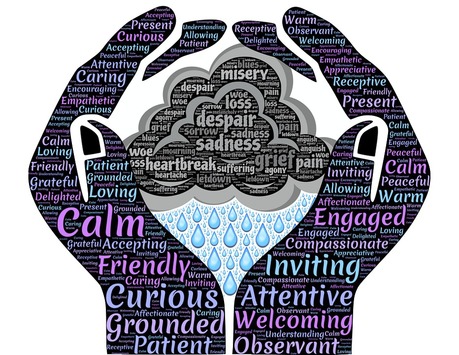
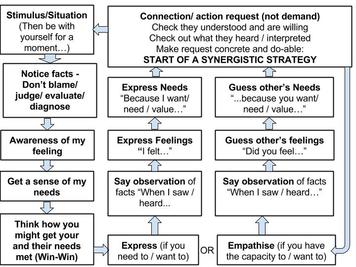
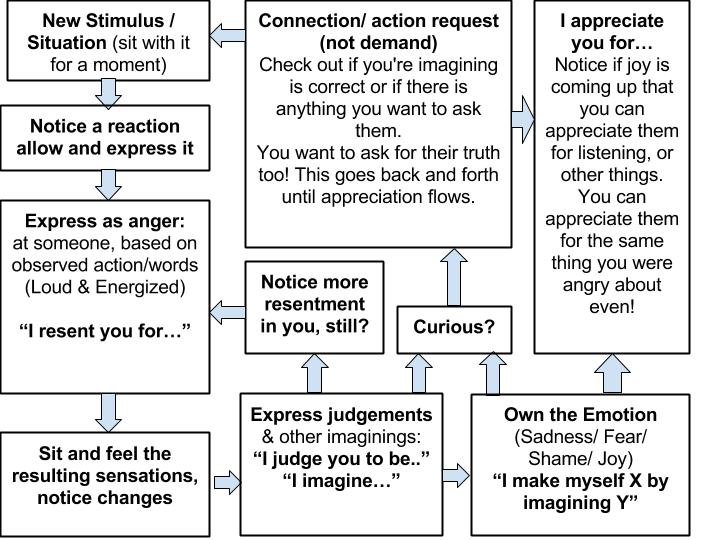
 RSS Feed
RSS Feed